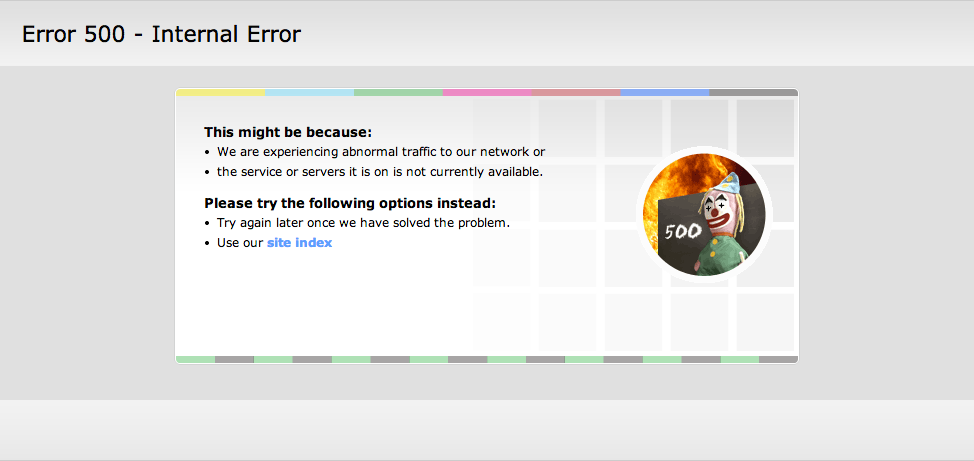Test card 505

I was browsing around the BBC News site tonight and at one point it threw up a 500 server error page, which as it turns out is a fantastic play on the über famous Test Card F. Love it!
Since 2010

I was browsing around the BBC News site tonight and at one point it threw up a 500 server error page, which as it turns out is a fantastic play on the über famous Test Card F. Love it!
From the MDN reference for the JavaScript Date object:
month: Integer value representing the month, beginning with 0 for January to 11 for December.
Well there’s an afternoon of debugging I’m not going to get back.
Another iOS app post, this time about TripView by Grosoft. I use this app at least twice every single day and I’d be completely lost without it. I’ll bet a massive percentage of Sydneysiders have this app installed on their phones.
I bring TripView up because I had a little problem with the app the other day. It was suggesting all sorts of weird and wonderful ways for me to get from station A to station B, but it wasn’t offering up the fastest and most direct route at all. The developer replied within minutes, pushed a timetable update that fixed my problem, and has committed to fixing this in the future.
I love stuff like this - small, nimble developers who provide solutions that do one thing and do it incredibly well. It’s the complete opposite from my 9-to-5 life!
Grosoft offers a free version of TripView, but I encourage everyone who uses it to plonk down (less than) four bucks on the full version if for no reason other than knowing it’s the right thing to do.
The opening paragraph from the release notes for the latest version of Pocket Casts:
Do you ever feel like sometimes you need to take some time out, and just work on yourself? Not going shopping for new clothes, or getting a new haircut, but just getting more into shape and altering a few things? No? Well neither do we…why are we even talking about this?
I use Pocket Casts and Australian-based Shifty Jelly’s other iOS app, Pocket Weather AU, every single day. They sound like a fun bunch of people!

It turns out it’s no joke: there is a baby formula shortage.